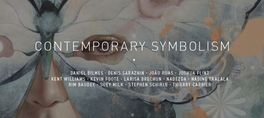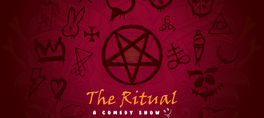March 29 and March 30 at 8pm, March 30 and March 31 at 3 pm
Nava Dance Theatre, in association with CounterPulse, today announced the San Francisco premiere of "Broken Seeds Still Grow: Taking Root," an immersive performance experience featuring story-telling, bharatanatyam, Indian miniature painting, video animation and live music, March 29-31 at CounterPulse in San Francisco. "Broken Seeds Still Grow: Taking Root" is the continuing major collaboration between Nava Dance Theatre Founder/Artistic Director Nadhi Thekkek and Painter/Calligrapher Rupy C. Tut. First premiered in 2017 in Oakland, this project initially took inspiration from research and archival resources pertaining to the 1947 Partition of British India. This new iteration of "Broken Seeds Still Grow: Taking Root" turns the lens more on the South Asian American experience and takes inspiration from the stories of immigrant families struggling with the enduring impact of South Asia's past and the current climate of xenophobia here in the United States.
In addition to their current research in part through the South Asian American Digital Archive, Thekkek and Tut are drawing on their own extensive family histories and those shared by the overwhelming responses to 2017 performances of "Broken Seeds." "Our community hasn't heard these stories publicly," says Thekkek. "It's time to tell these stories out loud for everyone to hear."
Thekkek will create several new dance vignettes in the South Indian classical dance form of bharatanatyam, while Tut is doubling the number of new Indian miniature paintings and calligraphy featured in "Broken Seeds." The result is a work in which visual art, dance, and spoken word unite past and present stories and personal experiences. Also new to this production is the video animation of several of Tut's artwork, making vivid and alive this ancient art form as well as an interactive installation inviting the audience to connect directly with objects, family artifacts, videos and sounds prior to entering the theater.
show less
Nava Dance Theatre, in association with CounterPulse, today announced the San Francisco premiere of "Broken Seeds Still Grow: Taking Root," an immersive performance experience featuring story-telling, bharatanatyam, Indian miniature painting, video animation and live music, March 29-31 at CounterPulse in San Francisco. "Broken Seeds Still Grow: Taking Root" is the continuing major collaboration between Nava Dance Theatre Founder/Artistic Director Nadhi Thekkek and Painter/Calligrapher Rupy C. Tut. First premiered in 2017 in Oakland, this project initially took inspiration from research and archival resources pertaining to the 1947 Partition of British India. This new iteration of "Broken Seeds Still Grow: Taking Root" turns the lens more on the South Asian American experience and takes inspiration from the stories of immigrant families struggling with the enduring impact of South Asia's past and the current climate of xenophobia here in the United States.
In addition to their current research in part through the South Asian American Digital Archive, Thekkek and Tut are drawing on their own extensive family histories and those shared by the overwhelming responses to 2017 performances of "Broken Seeds." "Our community hasn't heard these stories publicly," says Thekkek. "It's time to tell these stories out loud for everyone to hear."
Thekkek will create several new dance vignettes in the South Indian classical dance form of bharatanatyam, while Tut is doubling the number of new Indian miniature paintings and calligraphy featured in "Broken Seeds." The result is a work in which visual art, dance, and spoken word unite past and present stories and personal experiences. Also new to this production is the video animation of several of Tut's artwork, making vivid and alive this ancient art form as well as an interactive installation inviting the audience to connect directly with objects, family artifacts, videos and sounds prior to entering the theater.
March 29 and March 30 at 8pm, March 30 and March 31 at 3 pm
Nava Dance Theatre, in association with CounterPulse, today announced the San Francisco premiere of "Broken Seeds Still Grow: Taking Root," an immersive performance experience featuring story-telling, bharatanatyam, Indian miniature painting, video animation and live music, March 29-31 at CounterPulse in San Francisco. "Broken Seeds Still Grow: Taking Root" is the continuing major collaboration between Nava Dance Theatre Founder/Artistic Director Nadhi Thekkek and Painter/Calligrapher Rupy C. Tut. First premiered in 2017 in Oakland, this project initially took inspiration from research and archival resources pertaining to the 1947 Partition of British India. This new iteration of "Broken Seeds Still Grow: Taking Root" turns the lens more on the South Asian American experience and takes inspiration from the stories of immigrant families struggling with the enduring impact of South Asia's past and the current climate of xenophobia here in the United States.
In addition to their current research in part through the South Asian American Digital Archive, Thekkek and Tut are drawing on their own extensive family histories and those shared by the overwhelming responses to 2017 performances of "Broken Seeds." "Our community hasn't heard these stories publicly," says Thekkek. "It's time to tell these stories out loud for everyone to hear."
Thekkek will create several new dance vignettes in the South Indian classical dance form of bharatanatyam, while Tut is doubling the number of new Indian miniature paintings and calligraphy featured in "Broken Seeds." The result is a work in which visual art, dance, and spoken word unite past and present stories and personal experiences. Also new to this production is the video animation of several of Tut's artwork, making vivid and alive this ancient art form as well as an interactive installation inviting the audience to connect directly with objects, family artifacts, videos and sounds prior to entering the theater.
read more
Nava Dance Theatre, in association with CounterPulse, today announced the San Francisco premiere of "Broken Seeds Still Grow: Taking Root," an immersive performance experience featuring story-telling, bharatanatyam, Indian miniature painting, video animation and live music, March 29-31 at CounterPulse in San Francisco. "Broken Seeds Still Grow: Taking Root" is the continuing major collaboration between Nava Dance Theatre Founder/Artistic Director Nadhi Thekkek and Painter/Calligrapher Rupy C. Tut. First premiered in 2017 in Oakland, this project initially took inspiration from research and archival resources pertaining to the 1947 Partition of British India. This new iteration of "Broken Seeds Still Grow: Taking Root" turns the lens more on the South Asian American experience and takes inspiration from the stories of immigrant families struggling with the enduring impact of South Asia's past and the current climate of xenophobia here in the United States.
In addition to their current research in part through the South Asian American Digital Archive, Thekkek and Tut are drawing on their own extensive family histories and those shared by the overwhelming responses to 2017 performances of "Broken Seeds." "Our community hasn't heard these stories publicly," says Thekkek. "It's time to tell these stories out loud for everyone to hear."
Thekkek will create several new dance vignettes in the South Indian classical dance form of bharatanatyam, while Tut is doubling the number of new Indian miniature paintings and calligraphy featured in "Broken Seeds." The result is a work in which visual art, dance, and spoken word unite past and present stories and personal experiences. Also new to this production is the video animation of several of Tut's artwork, making vivid and alive this ancient art form as well as an interactive installation inviting the audience to connect directly with objects, family artifacts, videos and sounds prior to entering the theater.
show less
Date/Times:
80 Turk Street, San Francisco, CA 94103
The Best Events
Every Week in Your Inbox
From Our Sponsors
UPCOMING EVENTS
Great suggestion! We'll be in touch.
Event reviewed successfully.








